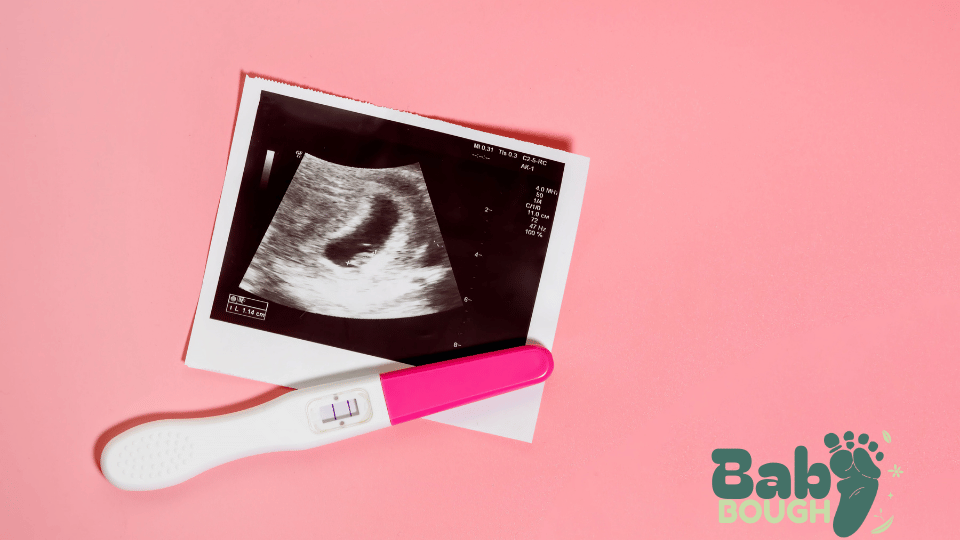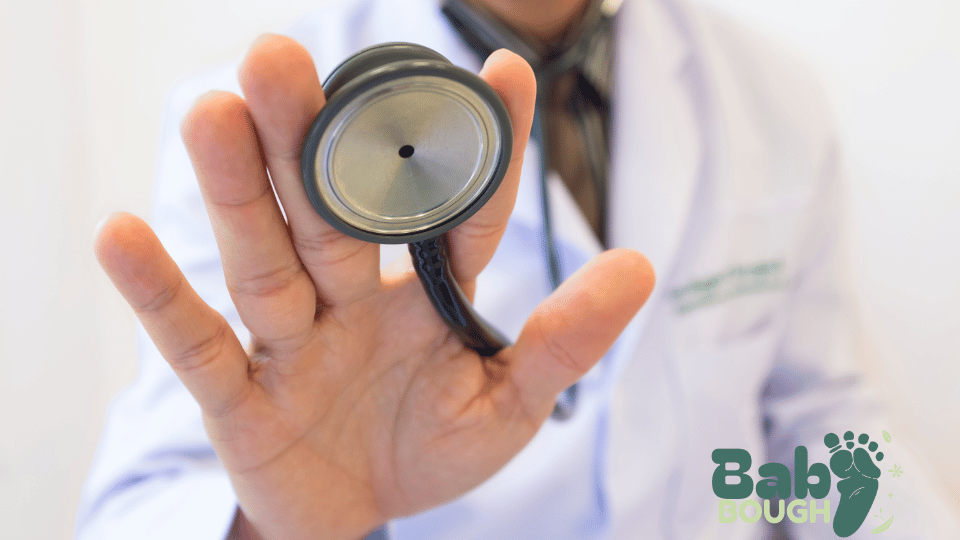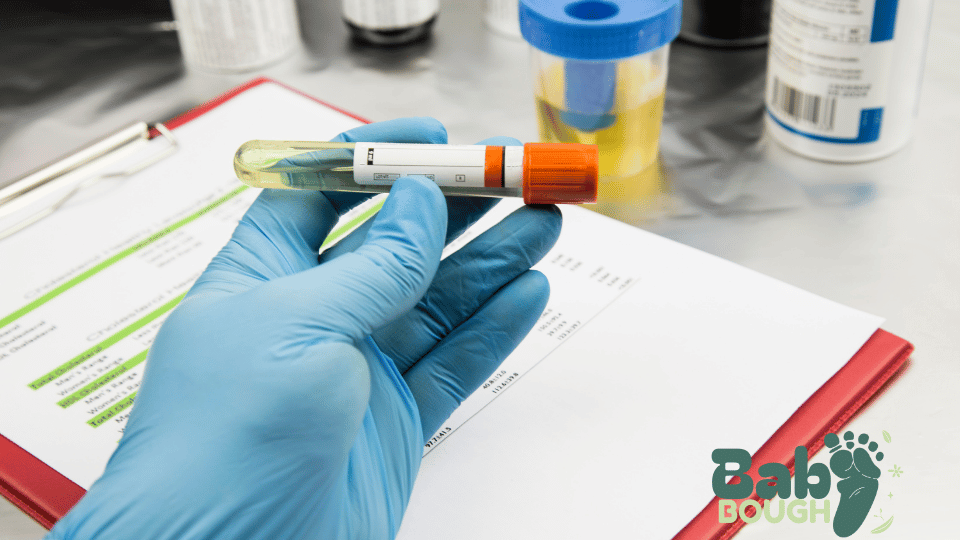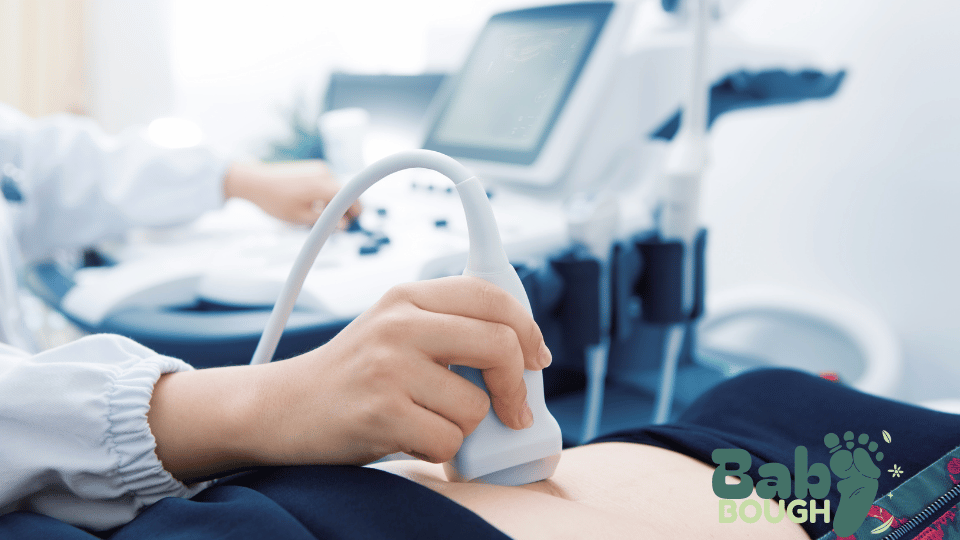
The thrill of realizing you are pregnant is soon followed by a set of necessary to-dos—one of which is arranging your first prenatal visit. This first appointment to your midwife or doctor guarantees you and your child are on the correct path and sets the foundation for your pregnancy adventure. This is the time you will begin your prenatal care schedule; but, if this is your first pregnancy, you may be curious about what precisely happens at this first appointment.
Usually spanning a range of health checks, tests, and conversations on your medical history and lifestyle, the first pregnant session is longer than others. This is your chance to ask questions, allay any worries, and make sure your child and you start off in good health.
From the important health exams to the several tests your healthcare professional can advise, this blog post will walk you through all you should expect during your first prenatal visit. For your first doctor visit, this information will enable you to be ready and confident.
1. Your Medical History: Building the Foundation for Prenatal Care

Your first prenatal visit usually starts with a detailed review of your medical history. This is an essential part of establishing a baseline for your pregnancy care. Your doctor or midwife will ask you questions about:
- Your General Health: This includes past illnesses, surgeries, and any chronic conditions like diabetes or high blood pressure.
- Family History: You’ll also be asked about any hereditary conditions in your family, as well as your partner’s family, that could affect your pregnancy or your baby’s health.
- Previous Pregnancies: If you’ve been pregnant before, your provider will want to know about any complications, miscarriages, or specific experiences you had in previous pregnancies.
- Medications and Allergies: Make sure to inform your doctor about any medications, supplements, or herbal remedies you’re taking, as some may need to be adjusted during pregnancy.
- Lifestyle Factors: Be ready to discuss your diet, exercise habits, smoking or alcohol use, and stress levels. Your healthcare provider will give you advice on how to make pregnancy-safe adjustments if necessary.
The goal is to identify any potential risks early on and establish a plan to ensure both you and your baby are healthy throughout the pregnancy.
Learn more about what to expect at prenatal visits.
2. Physical Examination: Checking Your Overall Health

After discussing your medical history, your healthcare provider will perform a physical examination. This is an important step in assessing your overall health and identifying any potential issues early on. During the exam, you can expect the following:
- Blood Pressure Check: High blood pressure can be a risk factor during pregnancy, so monitoring it from the beginning is important.
- Weight Measurement: Your doctor will record your current weight to track healthy weight gain throughout your pregnancy.
- Pelvic Exam: Your doctor will check the size and shape of your uterus and may conduct a Pap smear to screen for cervical cancer if you haven’t had one recently.
- Breast Exam: Your provider may check for any lumps or irregularities in your breasts as they begin to change in preparation for breastfeeding.
These exams help your healthcare provider get a clear picture of your health and ensure your body is ready for pregnancy.
3. Blood Tests: Screening for Important Health Markers

At your first prenatal appointment, your doctor will likely order a series of blood tests to screen for various conditions and establish a baseline for your health. Some of the key blood tests you can expect include:
- Blood Type and Rh Factor: Knowing your blood type and Rh factor (positive or negative) is essential, as Rh incompatibility between you and your baby could cause complications later in pregnancy.
- Complete Blood Count (CBC): This test checks for anemia, infections, and overall blood health.
- Immunity to Certain Diseases: Your doctor may test for immunity to rubella (German measles) and chickenpox, as contracting these diseases during pregnancy could harm your baby.
- Screening for STIs: Tests for sexually transmitted infections like HIV, syphilis, and hepatitis B are often recommended to ensure you receive the right care if needed.
- Blood Sugar Levels: This helps screen for diabetes, particularly if you have risk factors for gestational diabetes.
These blood tests provide important information that can shape your prenatal care and help prevent potential complications.
More on pregnancy blood tests.
4. Urine Tests: Monitoring Kidney Function and Screening for Infections

Another routine part of your first prenatal appointment is a urine test. Urine tests are used to check for several key indicators of health, including:
- Protein Levels: High levels of protein in your urine could be a sign of preeclampsia, a condition characterized by high blood pressure during pregnancy.
- Glucose Levels: Elevated glucose levels could indicate gestational diabetes, which typically develops later in pregnancy but is monitored early on.
- Urinary Tract Infections (UTIs): Pregnancy can make you more prone to UTIs, which, if untreated, can lead to complications.
Your healthcare provider will likely ask for urine samples at several points during your pregnancy to monitor your kidney function and detect potential issues early.
5. Ultrasound: Seeing Your Baby for the First Time

One of the most exciting moments of your first prenatal appointment might be your first ultrasound. While some doctors wait until later in the first trimester for an ultrasound, many will perform one during your initial visit to confirm the pregnancy, check for a heartbeat, and determine how far along you are.
The ultrasound will also help your doctor:
- Confirm Due Date: Based on the size and development of the embryo, your provider can give you a more accurate due date.
- Check for Multiple Pregnancies: An ultrasound can reveal whether you’re carrying more than one baby.
- Assess Early Development: Your doctor will look for key developmental markers, such as the formation of the yolk sac and fetal heartbeat.
For many expecting parents, the first ultrasound is a thrilling experience, as it’s the first opportunity to see your baby on the screen.
More on pregnancy ultrasounds.
6. Genetic Screening: Discussing Options for Further Testing

During your first prenatal visit, your healthcare provider may discuss genetic screening options with you. These tests help assess the risk of certain genetic conditions and birth defects. Common screening tests offered early in pregnancy include:
- Noninvasive Prenatal Testing (NIPT): This blood test screens for chromosomal abnormalities like Down syndrome, trisomy 18, and trisomy 13.
- Carrier Screening: This test checks whether you or your partner are carriers of inherited genetic conditions, such as cystic fibrosis or sickle cell anemia.
- First-Trimester Combined Screening: This includes a blood test and an ultrasound to assess your baby’s risk for chromosomal abnormalities.
Genetic screening is optional, and your doctor will guide you through the risks and benefits, allowing you to make an informed decision.
7. Preparing for the Next Steps: Setting Expectations for Future Appointments

Your first prenatal visit is just the beginning of your pregnancy care journey. Before you leave the office, your doctor will provide you with guidelines on what to expect in the coming weeks and months. This might include:
- Scheduling Future Appointments: Most doctors recommend monthly visits during the first and second trimesters, followed by more frequent visits as you approach your due date.
- Diet and Exercise Recommendations: Your healthcare provider will give you advice on what foods to eat (and what to avoid), along with safe exercise options during pregnancy.
- Prenatal Vitamins: If you haven’t already started, your doctor will recommend prenatal vitamins containing essential nutrients like folic acid, iron, and calcium.
- Signs to Watch For: Your provider will go over warning signs to be aware of, such as heavy bleeding, severe abdominal pain, or dizziness, and will let you know when to seek medical help.
By the end of your first appointment, you should have a clear understanding of what comes next and feel confident in the care plan established for you and your baby.
More on pregnancy nutrition and care.
Conclusion:
Your first prenatal visit is a significant turning point in your pregnancy because it determines the basis of your prenatal treatment and guarantees a smooth pregnancy. Key health checks, blood tests, and screenings help your doctor to compile vital data about your condition and the development of your baby.
Knowing what to expect at your first prenatal visit will make you feel more prepared and empowered, whether this is your first pregnancy or if you have traveled this road before. Recall that this is the ideal moment to raise questions, express worries, and create conditions for a normal and seamless pregnancy.

